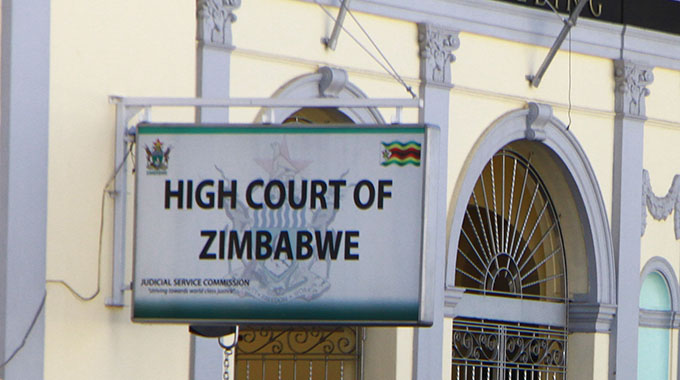Justice at last for maintenance litigant

Daniel Nemukuyu
Investigations Editor
A BULAWAYO woman who failed to execute her maintenance award of US$150 monthly for eight years due to bungling by a magistrate, will now claim her dues now in excess of US$12 000 after intervention of the High Court.
Ms Manyara Masedewe was awarded the order for payment of US$150 spousal maintenance, but a Bulawayo magistrate reportedly bungled and set aside the order without a court hearing and without the woman’s knowledge.
The magistrate dumped the maintenance order after receiving a letter from the husband’s lawyers through a document he termed “judgment clarification”.
But that said “judgment clarification”, according to legal experts, is not provided for in the Magistrates’ Court Act and all variations to a maintenance order can be effected after a court application by one the parties and with both parties given an opportunity to address the court.
That clarification has seen Ms Masedewe going for eight years without receiving spousal maintenance.
Ms Masedewe, who was entirely depended on her husband during marriage, said she had been living a miserable life due to the non-payment of the maintenance.
The Chief Magistrate’s Office asked the High Court to intervene on the basis that the mother and ex-wife was never asked to give her views before the first order was clarified out of existence.
On December 15, 2020, Justices Nokuthula Moyo and Thompson Mabhikwa set aside the “judgment clarification” after the magistrate admitted to bungling.
“In this matter, the learned magistrate erred by revisiting an order that he had given in a maintenance case on the strength of a letter that had been written by a firm of lawyers representing one of the litigants in the case.
“The learned magistrate upon receipt of a letter by lawyers from one of the parties in the matter, sought to amend the order he had initially given through the inscriptions in the record of a paragraph titled ‘judgment clarification’.
“The learned magistrate concedes the error and wishes to have the order granted under the title ‘judgment clarification’ set aside.
“Accordingly, the order of the magistrate under case number M56/2014 issued on October 5 2015 and titled ‘judgment clarification’ is hereby set aside,” ruled the High Court.
Deputy Chief Magistrate Mrs Bianca Makwande wrote to Ms Masedewe on December 20, informing her of the development.
This means Ms Masedewe can now proceed to claim her maintenance, which is now in excess of US$12 000.
Ms Masedewe, who was married to a businessman Mr Munetsi Blessing Masedewe under the Marriages Act, separated with her husband in 2012 and was awarded US$150 monthly maintenance.
The usual and routine spousal maintenance was issued: “The respondent (Mr Masedewe) is ordered to pay $150 monthly maintenance for the applicant with effect from November 2012. The maintenance will be paid through the applicant’s bank on or before the end of each month and will run until the order is either varied or the applicant dies or remarries whichever is earlier.”
When the woman won custody of the minor child some two years later, a different magistrate in the same court separately ordered Mr Masedewe to pay monthly maintenance of US$280 for the minor child. Again the child order is the standard one: “Respondent is hereby ordered to pay $280 monthly maintenance for the minor child until the child attains 18 years or is self-sufficient whichever occurs sooner. Respondent is also ordered to pay school fees for the minor child.”
But there were now two separate maintenance orders issued by two different magistrates, although one was for the ex-wife and other for the child.
One of the magistrates after communicating with Mr Masedewe’s lawyer, unilaterally and without any court hearing, issued what he called a “judgment clarification”.
The debt is in excess of US$12 000, but efforts to have Mr Masedewe prosecuted for non-compliance with the spousal maintenance order of 2012 proved fruitless as the man’s lawyers always produced the “judgment clarification” as his defence, and police do not have discretion to alter a court order.
Legal expert and former head of the Harare Civil Court Mr Brighton Pabwe said a correction of a judgment can only be done after a formal application, which means both parties are told and both given the opportunity to address the court.
Another former magistrate Mr Reginald Mutero, who is now practicing at Caleb Mucheche Law Chambers said only judges, in terms of the High Court rules, can make changes without hearing.
“In the Magistrates’ Court Act, there is nothing called judgment clarification. There are provisions for correction, interpretation and variation and the parties have to first make an application. However, in terms of the High Court Rule 449, judges can do so on their own,” he said.










Comments